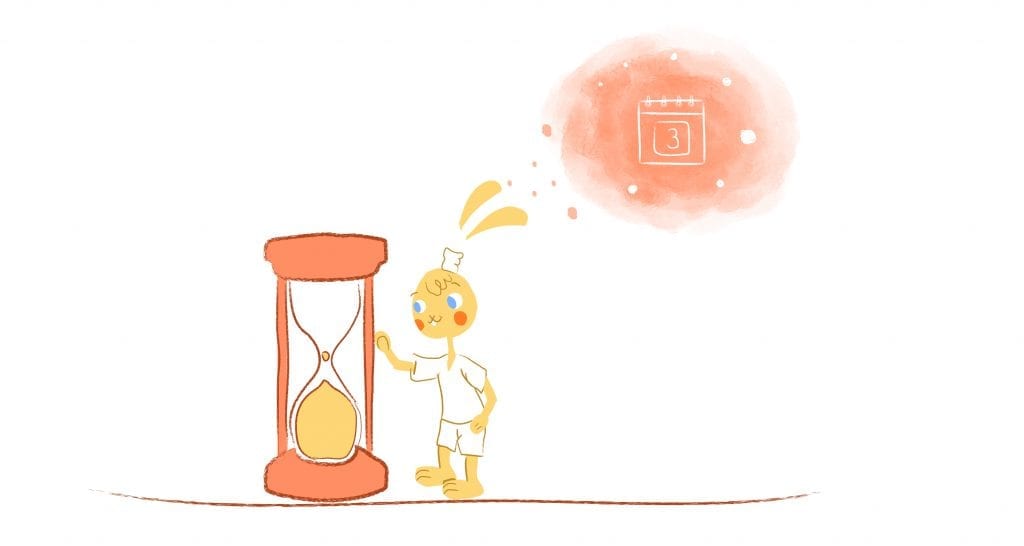
You’ll love watching “The Daily Stoic” channel, where Ryan Holiday shares his insights on achieving focus in a noisy, distracting world. His ideas draw from ancient Stoic wisdom and relate it to our modern challenges. In his talk, he explains how the art of concentration is not just for philosophers deep in thought, but for anyone who wants to perform at the highest level in every aspect of life.
The Enduring Challenge of Concentration
Ryan Holiday begins by arguing that the effort required to focus is as daunting today as it was in ancient times. The ability to focus on a task is essential for success, creativity, and overall happiness. He stresses that uninterrupted blocks of time are necessary for achieving elite performance.
He explains that focus is a skill that only we can nurture ourselves. No external tool or person can grant us real concentration. It is a battle against our inner tendencies, the literal noise around us, and the lure of everyday distractions.
“All outdoors can be bedum, but if it’s internal, if it’s peaceful in here, you should be good to go.”
These words evoke the timeless struggle for inner calm. As I listened, I recognized that the modern world, despite changes in technology and pace, still challenges our ability to concentrate as fiercely as in Seneca’s era.
Lessons From Ancient Stoics
Ryan shares a powerful anecdote involving Seneca, a respected Roman figure known not only for his writings but for his role in politics and investment. Even a man of Seneca’s stature was not immune to the clamor of his surroundings. In bustling Rome, Seneca had to block out the chaotic sounds of everyday life—from construction noise to street chatter—in order to write and create.
Seneca advised tuning out distractions and building an internal space of calm. He stated that true concentration comes from developing inner discipline rather than relying on the silence of your environment.
“When no noise reaches you, when no word shakes you out of yourself… you should be good to go.”
This idea strongly resonated with me. It is not realistic to expect perfect external silence. Instead, the secret lies in managing our internal reactions, so that even the loudest background noise fails to disturb our focus.
Another ancient perspective shared by Holiday comes from Marcus Aurelius. He famously reminded himself to treat each concentration task as if it were the final one. The Stoics believed that considering life’s brevity allowed them to filter out insignificant distractions. That real focus means devoting your energy solely to matters that truly impact your future.
Modern Implications: Managing Distraction In A Noisy World
Ryan Holiday draws a clear connection between ancient wisdom and the challenges we face today. Our current era is saturated with signals vying for our attention—from phone notifications to the constant stream of online news. The talk emphasizes that managing our media and information consumption is just as critical as tuning out street noise in ancient Rome.
Holiday makes the point that if your focus depends on external conditions, then you are a fair-weather concentrator. Instead, true focus is building mastery over your own mind. He criticizes the behavior of those who, even while in noisy places like coffee shops or airports, manage to produce their best work. Their ability stems from an inner discipline that remains unswayed by the environment.
- Focus is an Internal Battle: Your concentration is controlled by you, not by the world around you.
- Ancient Wisdom Remains Relevant: Stoics like Seneca and Marcus Aurelius practiced tuning out distractions by fortifying their inner calm.
- Media Management Matters: How you choose to spend your attention defines your productivity and well-being.
These points underscore the importance of recognizing that our mental bandwidth is a valuable resource. Industries and media companies spend considerable amounts to capture a fraction of that attention. Holiday urges us to ask ourselves, “If I am not directing my focus, then who is?”
Practical Strategies For Daily Discipline
Holiday does not offer abstract philosophy only—he provides tangible advice to help anyone strengthen concentration. One strategy involves starting the day without immediately diving into digital distractions. Instead of checking your phone or email as soon as you wake up, reserve that time for family, personal reflection, or creative work.
He recounts personal experiences, such as writing his best work in airports or during in-office construction. The lesson is clear: true focus builds from an ability to direct attention regardless of the environment. This requires both an inward effort and a deliberate structuring of your day.
“If your focus is dependent on external circumstances going your way, that’s not really focus at all.”
Another practical tip is to engage in simple physical activities, such as walking. A stroll can clear the mind and reset your attention. Historical figures such as Nietzsche, Hemingway, Darwin, Steve Jobs, and Martin Luther King all found clarity through physical movement. The act of walking helps to bypass internal clutter and restore concentration.
In my own observation, the idea of getting outside to clear your mind has never sounded more appealing. Small actions like these not only boost focus but also enrich our physical well-being. Mindful movement, whether it’s walking, swimming, or cycling, can serve as a reset button for a scattered mind.
Cultivating A Focused Mindset
Holiday emphasizes that the true battleground is within our minds. It is vital to build mental barriers that keep out unnecessary inputs. This means being selective about the news, social media, and even conversations that do not serve your purpose.
He wisely advises using the Eisenhower matrix to differentiate between what is urgent and what is essential. According to him, if you allow urgent but inconsequential matters to consume your attention, you lose the opportunity to invest in what matters. The goal is to develop an internal filter so well-tuned that only the most essential information reaches your conscious mind.
Holiday also discusses the importance of delegation. Not every task you can handle should require your unique input. Part of managing focus is knowing which tasks are your sole responsibility. By letting others take on parts of your work, you free yourself to channel energy toward projects that require your personal attention.
This philosophy was echoed with a memorable quotation: “He who is everywhere is nowhere.” It reminds us that overcommitting spreads our focus too thin. Instead, success comes from doing less but with greater concentration.
The Value Of A Well-Structured Routine
Establishing a daily routine is another recurring theme in Holiday’s talk. Rising early, when the day is still quiet and your mind is fresh, is a hallmark of many high performers. Mornings are considered an ideal time to tackle the most demanding tasks. By harnessing the freshness of the early hours, you stand a better chance of uninterrupted, deep work.
A notable example he gives is from the story of Tony Morrison, who prioritized his writing by working early before the day’s demands piled up. This strategy has helped many maintain a high level of productivity and mental clarity.
It is clear that in a modern world filled with endless distractions, establishing a set routine can protect your focus. The benefits are twofold: you gain more clarity by directing your attention to the right tasks, and you develop a sense of urgency that drives performance without the stress of scrambling at the last minute.
Reflection on Priorities and The Bigger Picture
One of the most profound ideas in Holiday’s talk is the importance of knowing what truly matters. Focus is not just about hours spent on work but about aligning your efforts with your long-term goals. He challenges us to ask ourselves whether our daily tasks are essential. The famous analogy he cites, “If you do not know what port you are sailing towards, no wind is favorable,” encapsulates this perfectly.
“If you do not know what port you are sailing towards, no wind is favorable.”
This calls for a clear vision of where we want to go. Without such a vision, even the most disciplined focus may end up in the wrong direction. Holiday prompts us to reassess our priorities. He suggests that we should cast aside tasks that do not contribute to long-term success. In doing so, we can concentrate our energy on the essential tasks that define our purpose.
The talk challenges the cultural norm that values constant activity over meaningful work. The temptation to stay busy becomes a trap if it prevents us from dedicating time to what truly matters. The ancient Stoics teach that subtraction is as powerful as addition. Instead of filling every minute with activities, we must learn to say no to the inessential.
Concluding Thoughts On Focus And Inner Control
Throughout his talk, Ryan Holiday presents a compelling case for reclaiming control over our attention. He frames the modern struggle for focus as both a personal battle and a strategic necessity. Drawing from the spirit of ancient Stoics, he urges us to view our mind as an empire where we must be the ruler. Only when we take charge of our attention can we direct our lives in the direction that matters.
The message is clear: focus is not accidental. It is cultivated through deliberate habits, disciplined routines, and a clear vision of what is essential. Whether it is resisting the lure of digital distractions, starting the day with quiet reflection, or taking time to move and reset, these practices build the mental fortitude needed to excel. I find that in our busy lives, this advice is a refreshing reminder that our mind is our most valuable asset.
In my view, adopting a stoic approach to concentration is not just about productivity; it is about living fully and with intention. The insights shared remind us that by tuning out the noise, we can tune in to our true potential. Each moment of focused work becomes a step toward a more purposeful and fulfilled life.
If you’re looking for ways to regain control over your focus, consider the following strategies. Recognize that the value of your attention cannot be overstated. Build habits that protect your mental space, prioritize tasks that align with your goals, and remember that sometimes doing less leads to achieving more.
Overall, Ryan Holiday’s perspective on focus offers both an inspiration and a practical guide. The blend of ancient wisdom and modern experience provides a clear roadmap to making better use of our time. As we strive to be more productive and centered in our daily lives, these lessons continue to be a rich source of guidance and comfort.
In closing, this talk reaffirms that the way we manage distraction and conserve focus determines our path. I encourage you to consider these insights and experiment with adjusting your routines. A well-directed mind is not only a tool for success but a path to a more serene and effective life.











Howie Jones
My name is Howie and I'm a Customer Success Manager at Calendar. I like to ensure our customers get the best experience using our product. If you have questions email me howie at calendar.com